 尊敬的各位来宾、同仁,女士们,先生们: 今天,我站在这里与大家探讨一个极其重要的问题——这个问题不仅关系到澳大利亚的未来,也影响到整个地区和全球社会的福祉。 袁祖文太平绅士现场演讲(节选版) 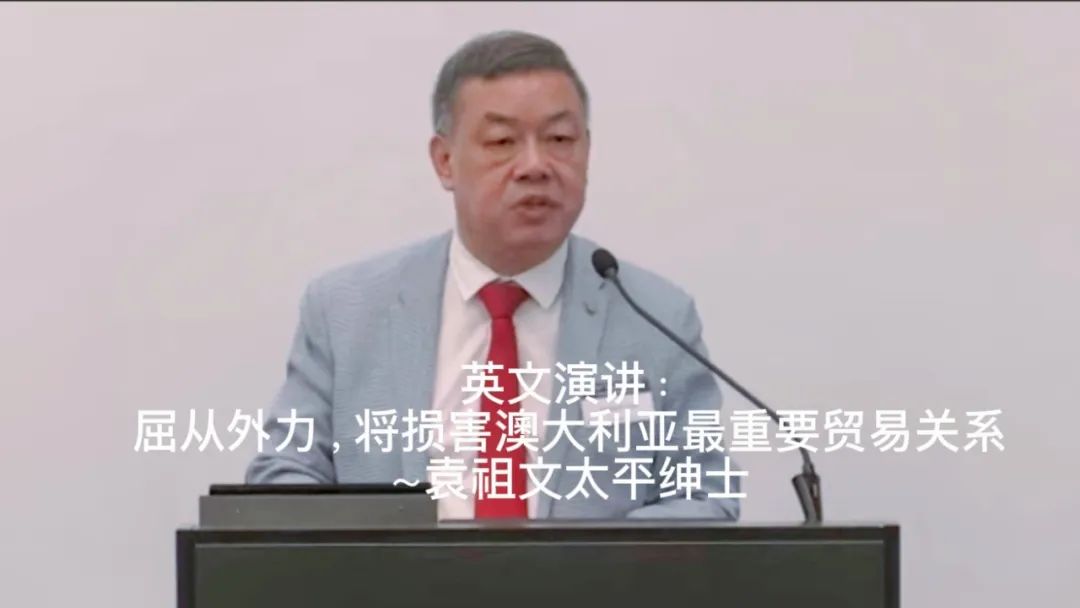 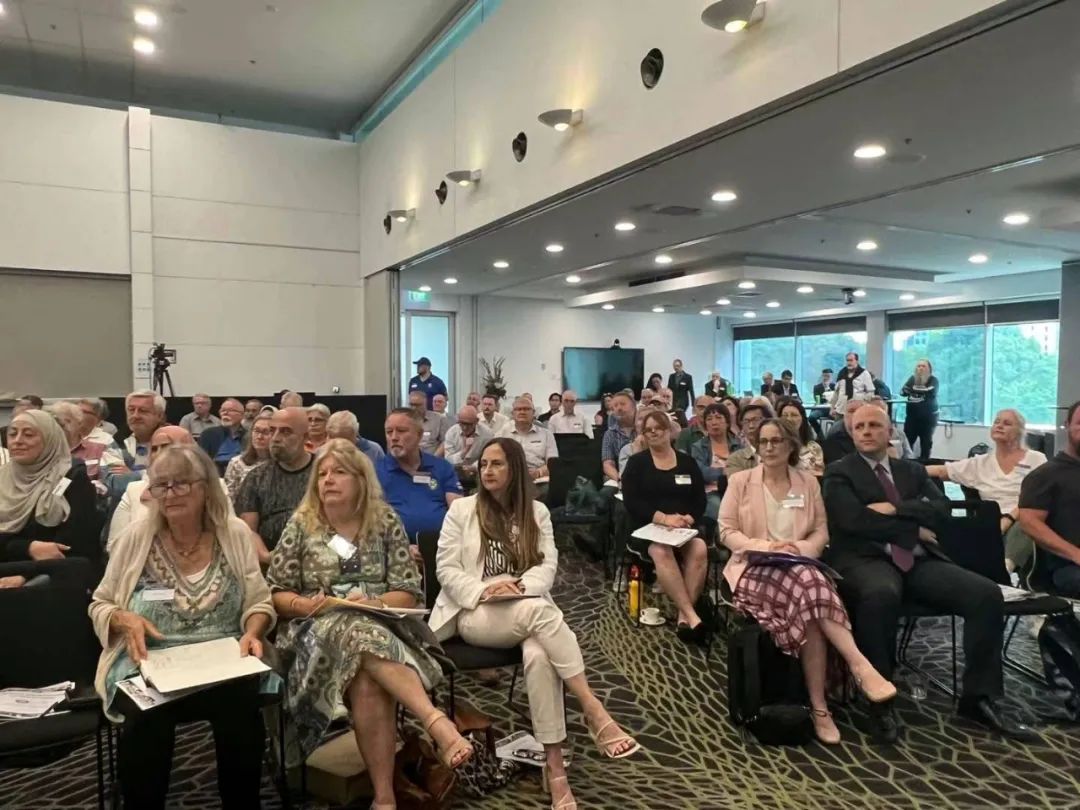 我们必须问自己:我们的国家会选择一条符合自身经济利益、尊重多元文化社区并维护公平与主权原则的独立道路吗?还是会卷入损害这些价值的冲突与联盟中? 历史的教训 历史为我们提供了无数关于屈从于外国力量所带来危害的警示。那些盲从他国议程的国家往往陷入冲突与停滞的泥潭。正如哲学家弗朗茨·法农所说,当深信的信念遭遇不可辩驳的证据时,常会引发一种被称为“认知失调”的心理冲突。这种冲突可能使个人乃至国家否认真相,而不是面对错误。 这种现象在围绕AUKUS协议的政治讨论中尤为显著。包括前总理保罗·基廷和马尔科姆·特恩布尔在内的批评者指出,该协议是“失败之举”。以高达3680亿澳元的天价代价,AUKUS将澳大利亚捆绑在过时的军事化策略上,而忽略了我们真正的优势:经济合作关系以及亚太地区的战略地位。 澳大利亚的战略定位 我们必须认识到一个基本事实:澳大利亚并非孤立于太平洋的一座孤岛,而是一个资源丰富的大陆,战略位置优越,毗邻全球增长最快的经济区域。通过短途航行,我们就能与中国、日本、印度尼西亚和印度等主要经济体紧密相连。 新加坡学者,外交官马凯硕曾提出一个引人深思的问题:澳大利亚应该视自己为西方力量的“矛尖”,还是东西方之间的桥梁? 答案应该显而易见。我们有充分理由选择后者。
这些动态为澳大利亚提供了绝佳的机会,只要我们保持独立并以相互尊重与共同利益为基础培育伙伴关系。 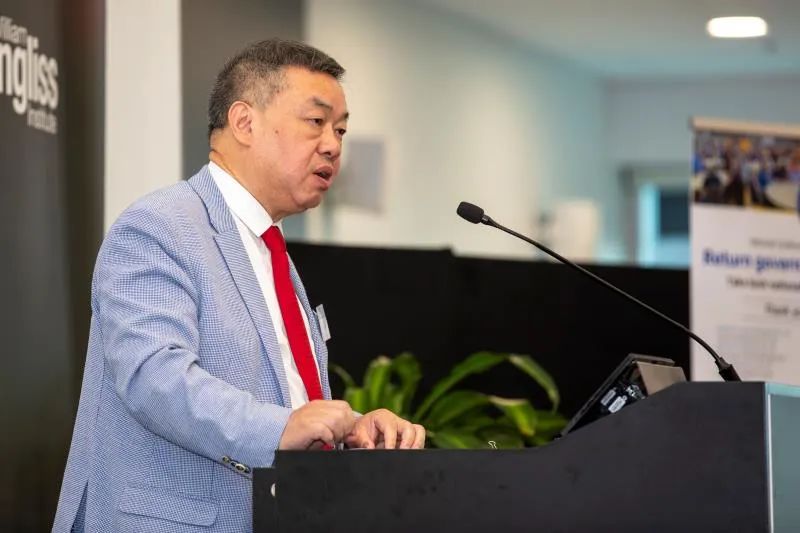 金砖国家的崛起与全球新秩序 当下最重要的发展之一是金砖国家(巴西、俄罗斯、印度、中国和南非)的迅速扩张。金砖国家占全球贸易的40%以上,正在重塑全球经济格局。 近期如金砖CLEAR金融系统等创新,提供了SWIFT网络的替代方案,促进本币交易,减少对美元的依赖。 经济学家雅克·萨皮尔预测,金砖国家的影响力增长将带来以下变革趋势:
对于澳大利亚来说,与这一充满活力的经济体邻近是机遇,也是祝福。但要充分把握这种潜力,我们必须摆脱旧联盟的束缚,采取更加独立与灵活的外交政策。 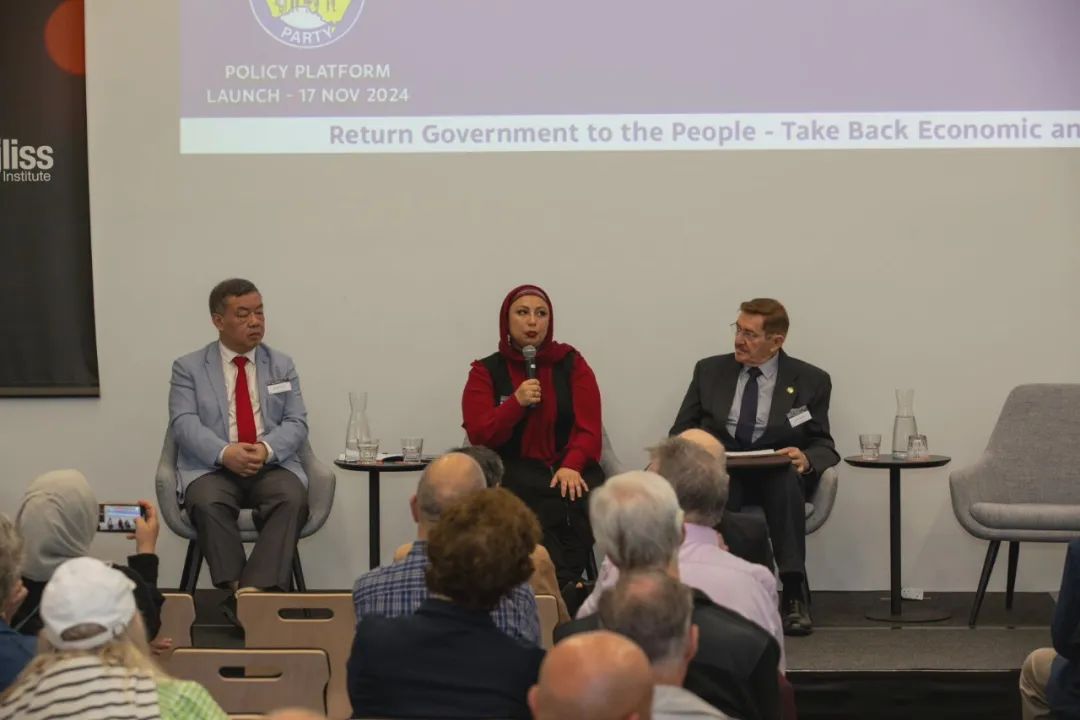 国内挑战:对澳籍华人社区的影响 这让我想到一个深刻的主题:澳大利亚华人社区。我们拥有140万的强大力量,是澳大利亚多元文化社会的重要组成部分。然而,近年来,我们遭遇的政策与言论却令人联想起历史上最黑暗的时期。 以2018年推出的《外国影响力透明度计划》(FITS)为例。表面上,该政策旨在维护国家安全,但实际上却制造了恐惧与猜忌,不公地将澳籍华人视为潜在威胁。 不要忘记杜阳(Sunny Duong)案。作为该政策下的首例定罪,他的“罪名”竟是向当地医院捐款——这一善举被歪曲为危害国家安全的指控。这种立法的过度延伸与“白澳政策”如出一辙,后者试图排除非欧洲移民。这种政策不仅疏远了华人社区,也通过制造分裂与不信任伤害了整个澳大利亚社会。 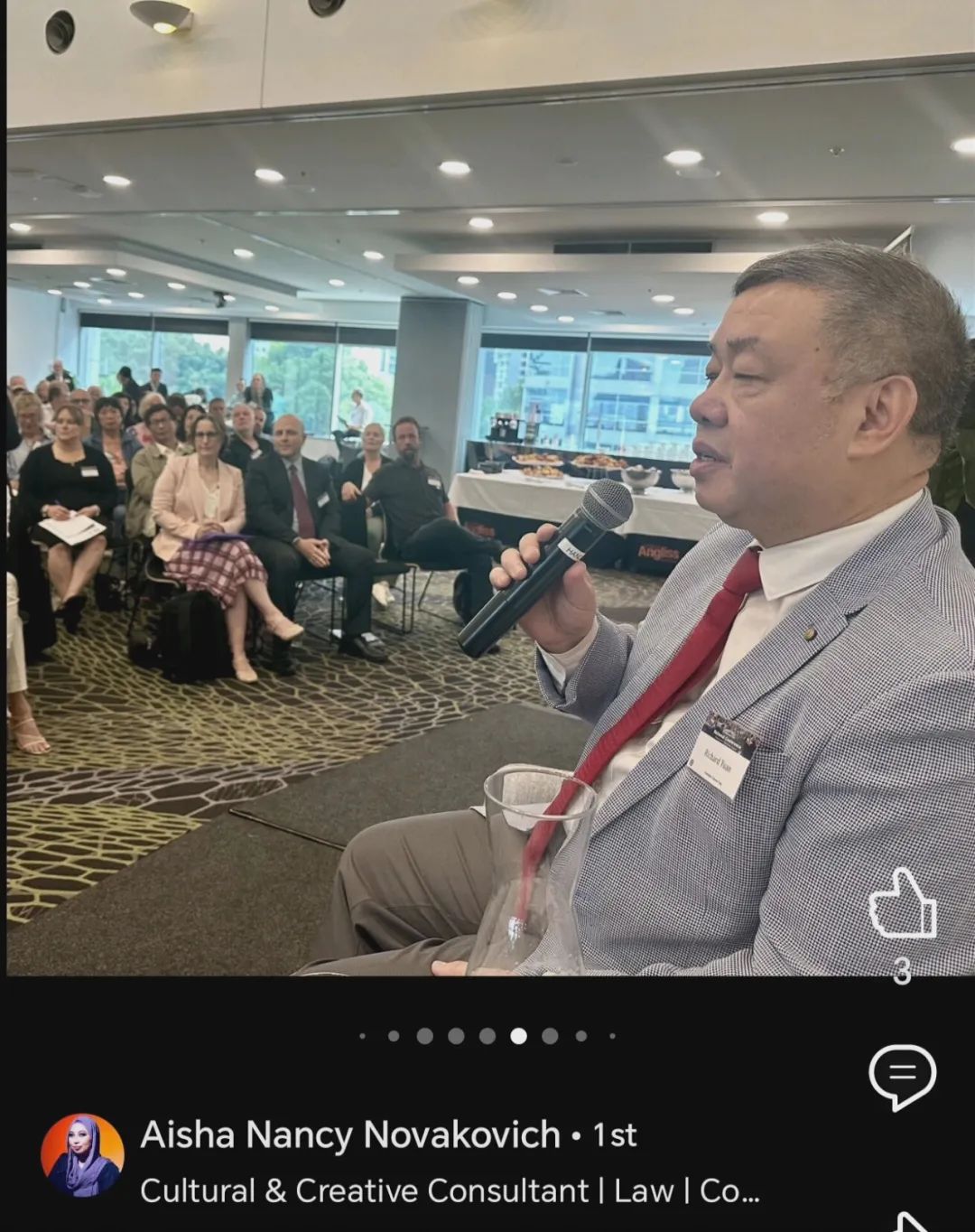 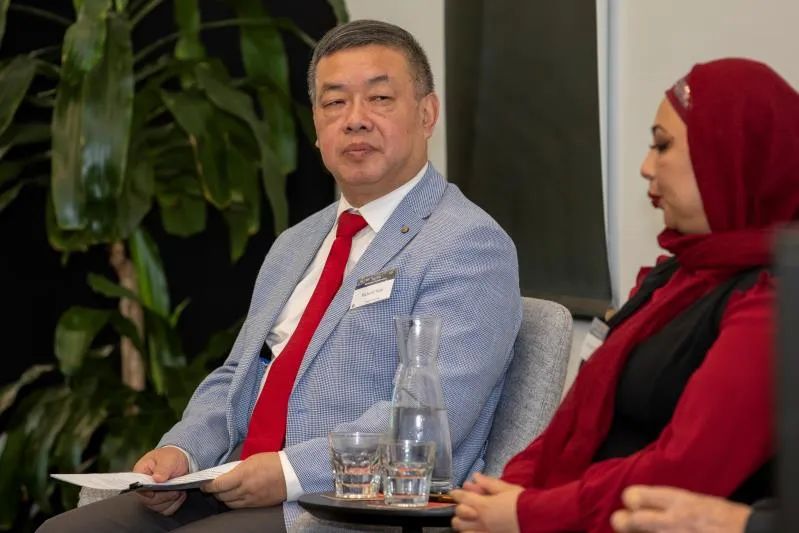 澳大利亚在亚太地区的角色 澳大利亚的命运在于能够与亚太邻国建设性互动。我们的未来繁荣取决于认识到我们的安全与地区的稳定和发展息息相关。 东盟国家,拥有超过6亿人口,是全球增长最快的经济体之一。印尼和越南等国家不仅是我们的贸易伙伴,也是塑造稳定地区秩序的盟友。强化与这些国家的联系符合我们的长期利益。 同样,与中国的关系依然至关重要。尽管存在政治紧张局势,中国是并可能继续成为我们最大的贸易伙伴。“一带一路”倡议为我们在基础设施和技术等领域的合作提供了机遇。通过与中国建设性互动,我们不仅能获得经济利益,还能为地区稳定做出贡献。 澳大利亚公民党(ACP)的愿景 澳洲公民党党魁Robert Barwick主席现场精彩发言之后,再三强调澳大利亚公民党倡导的各类政策: 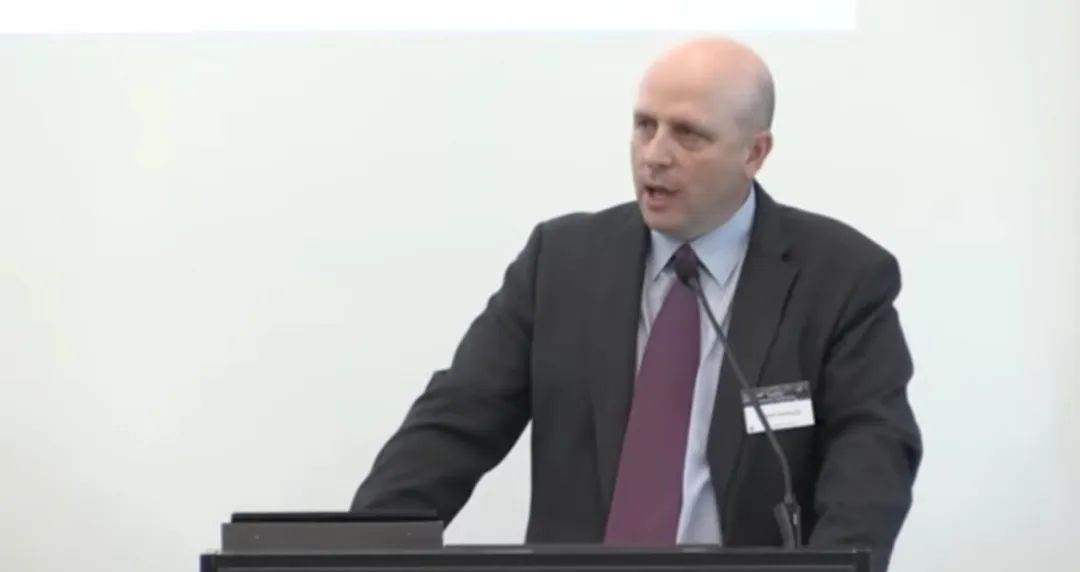 澳大利亚公民党的愿景包括以下三个关键支柱:
澳籍华人社区的角色 华人社区在这一愿景中扮演着独特角色。我们的文化遗产和商业才能使我们成为澳大利亚与亚洲之间的天然桥梁。然而,为了充分实现这一潜力,我们必须解决近年来形成的壁垒。 2022年联邦大选是一个转折点。华人社区对恐惧和分裂政治感到失望,用选票发出了强有力的信息:澳大利亚人不容忍破坏公平与包容的政策。 这一转变凸显了前瞻性治理的重要性——一种承认所有社区贡献并寻求发挥集体优势的方式。 结语:选择我们的未来 因此,我再次提问:澳大利亚真的想成为西方力量的“矛尖”吗?还是抓住机会成为东西方之间的桥梁,促进和平、繁荣与相互尊重? 答案是明确的。通过奉行独立的外交政策、加强地区伙伴关系以及弘扬多元文化价值观,我们可以建设一个更光明、更公平、更繁荣的未来。 澳大利亚独特的地理位置、丰富的资源和多样化的人口是我们在多极世界中成功的优势。但要实现这一潜力需要勇气——挑战过时观念的勇气,以及拥抱新机遇的智慧。 让我们共同努力,绘制一幅未来世代引以为豪的蓝图! 谢谢大家! 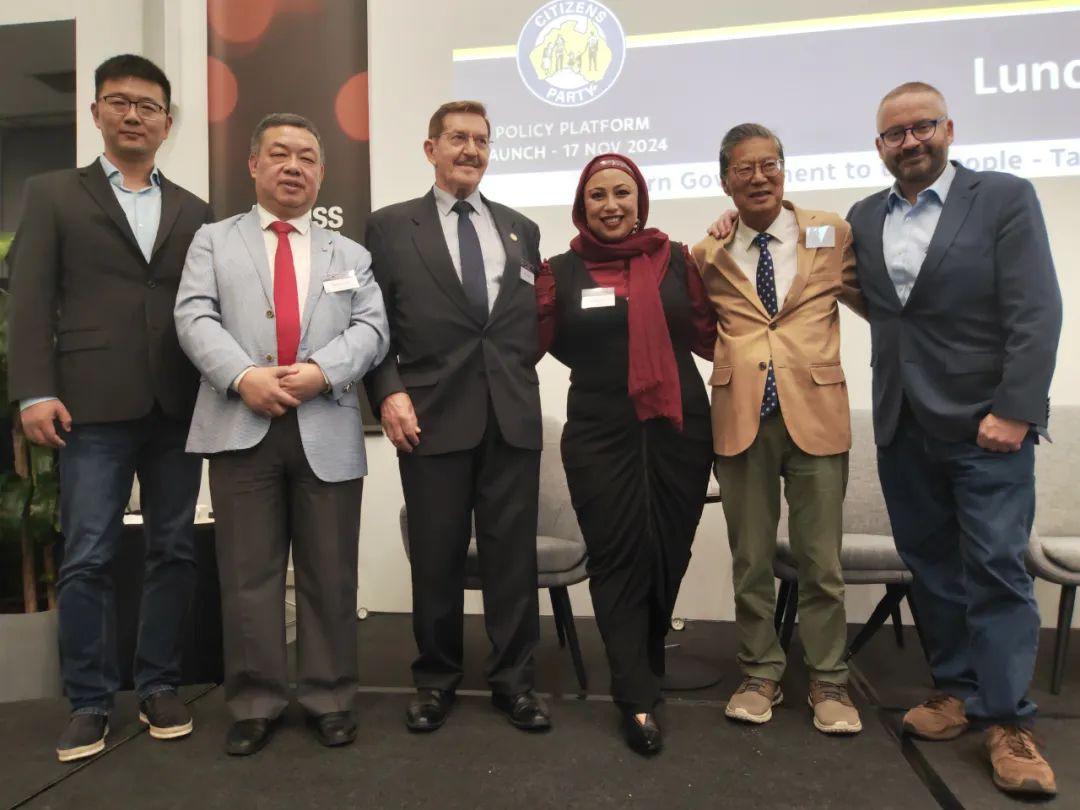 从左至右:Dio Wang/Richard Yuan/John Lander/Aisha Novakovich/Kingsley Liu/Macus Reubenstein 袁祖文太平绅士简介: 袁祖文太平绅士是澳大利亚的一位战略型领袖和社区领袖,致力于通过商业创新、文化交流和数字影响力促进中澳关系的发展。 2000年,袁祖文创立了“ABC World Pty Ltd”,这是一家全球化的数字平台,提供移民咨询、投资管理和媒体服务,也是南半球最大的微信平台矩阵之一,覆盖超过总计80万名粉丝。 作为“澳中企业家俱乐部”(Australia-China Entrepreneurs Club, ACE)的创始人,袁祖文构建了一个高影响力的网络,将文化传承、商业外交和社会纽带完美融合。 2020年,当澳大利亚深受疫情重创时,他组织了一架从武汉飞往悉尼的包机,将善意的防护物资捐赠给最需要的人。在主流媒体对他的贡献进行不实报道并予以抹黑时,袁祖文通过一系列成功的诽谤案件为自己和澳大利亚华人社区争取了公正。 袁祖文坚信,政府应还政于民,让公众的声音真正成为决策的核心。 该发言稿英文原稿: Ladies and gentlemen, esteemed colleagues, and honoredguests, Today, I stand before you to address a question of profoundsignificance—not just for Australia but for the broader region and the globalcommunity. The question we must ask is this: Will our nation chart anindependent course that serves our economic interests, respects ourmulticultural community, and upholds the principles of fairness andsovereignty? Or will we find ourselves drawn into conflicts and alliances thatcompromise all three? 袁祖文太平绅士现场演讲(节选版) Abbreviated Video History provides us with countless lessons about the perilsof subservience to foreign powers. Nations that blindly follow others’ agendasoften find themselves mired in conflict and stagnation. As the philosopherFranz Fanon once observed, when deeply held beliefs are challenged byirrefutable evidence, the result is often *cognitive dissonance*. Thispsychological conflict can lead individuals—and nations—to deny the truthrather than confront the errors in their thinking. This dynamic is strikingly evident in the politicaldiscourse surrounding the AUKUS agreement. Critics, including respected figuressuch as Paul Keating and Malcolm Turnbull, have rightly denounced this deal asa “dud.” At an astronomical cost of $368 billion, AUKUS ties Australia tooutdated strategies of militarization instead of investing in our truestrengths: economic relationships and our strategic advantages in theAsia-Pacific. Australia’s Strategic Position in a Changing World Let us reflect on a fundamental truth: Australia is not anisolated island adrift in the Pacific. We are a resource-rich continentstrategically positioned within the world’s fastest-growing economic region. Ashort voyage connects us to major economies such as China, Japan, Indonesia,and India. Singaporean scholar and diplomat, Kishore Mahbubani once posed aprovocative question: Should Australia see itself as the tip of the spear forWestern power, or as a bridge between East and West? The answer, for those willing to look objectively, should beclear. We have every reason to embrace the latter role. 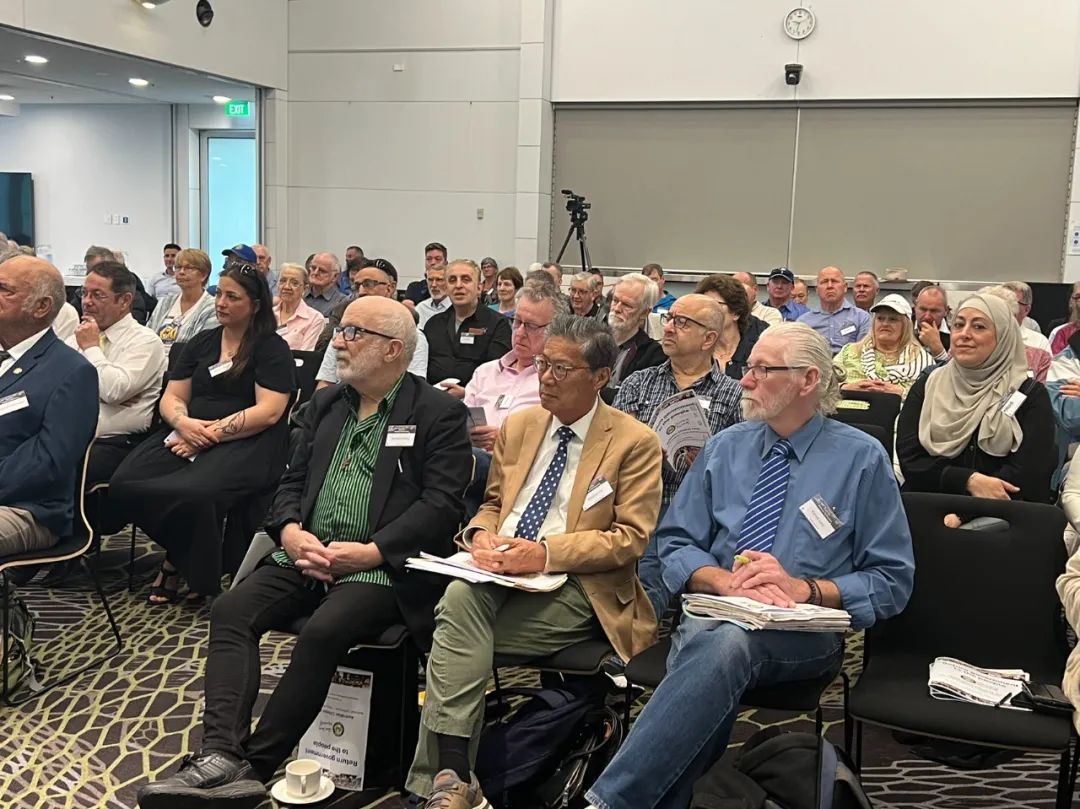 - Economically, our trade relationships with China, ASEANnations, and Japan have brought us unparalleled prosperity. The Belt and RoadInitiative (BRI), launched in 2013, has been a game-changer, fosteringinfrastructure development and trade networks that span Asia and beyond. - Regionally, ASEAN nations such as Indonesia, Malaysia,Thailand, and Vietnam are thriving. Their potential inclusion in BRICS furtherstrengthens their partnerships with China and India, creating a dynamiceconomic bloc. - Globally, China’s unparalleled manufacturing capacity andinfrastructure development lead the world, while India and Indonesia emerge aseconomic powerhouses, driven by their sheer scale, innovation, and youthfulpopulations. These dynamics present Australia with extraordinaryopportunities, provided we maintain our independence and cultivate partnershipsbased on mutual respect and shared interests. The Rise of BRICS and a New Global Order One of the most significant developments of our time is therapid expansion of BRICS—Brazil, Russia, India, China, and South Africa.Representing over 40% of global trade, BRICS is reshaping the global economiclandscape. Consider the impact of recent initiatives, such as the BRICSCLEAR financial system. This innovation offers an alternative to thetraditional SWIFT network, enabling trade in local currencies and reducingdependence on the US dollar. Economist Jacques Sapir has predicted several transformativetrends as a result of BRICS’ growing influence: 1. Trade Realignment: Western nations, including Australia,risk losing 5-7% of export volume as BRICS nations deepen intra-bloctrade. 2. De-Dollarization: As more countries reduce reliance onthe US dollar, global currency markets will become more volatile, challengingthe dominance of Western financial systems. 3. Debt Forgiveness and Investment: China and Russia areleading efforts to forgive loans and fund critical infrastructure projects indeveloping nations, building goodwill and strengthening economic ties. For Australia, proximity to this dynamic bloc is both ablessing and an opportunity. But to fully capitalize on this potential, we mustbreak free from the constraints of old alliances and adopt a more nuanced,independent approach to foreign policy. Domestic Challenges: The Impact on the Australian-ChineseCommunity This brings me to a deeply personal topic: theAustralian-Chinese community. We are 1.4 million strong—a vibrant, integralpart of Australia’s multicultural fabric. Yet, in recent years, we have facedpolicies and rhetoric that echo the darkest chapters of our history. Take, for instance, the Foreign Influence TransparencyScheme (FITS) introduced in 2018. While ostensibly designed to safeguardnational security, this policy has sown fear and suspicion, unfairly targetingChinese Australians as potential threats. Let us not forget the case of Sunny Duong, whose convictionunder this scheme sent shockwaves through our community. His so-called crime? Adonation to a local hospital—a gesture twisted into an allegation ofundermining national security. This legislative overreach is eerily reminiscent of theWhite Australia Policy, a discriminatory framework that sought to excludenon-European immigrants. Such policies alienate not only the Chinese communitybut also harm Australian society as a whole by fostering division andmistrust. 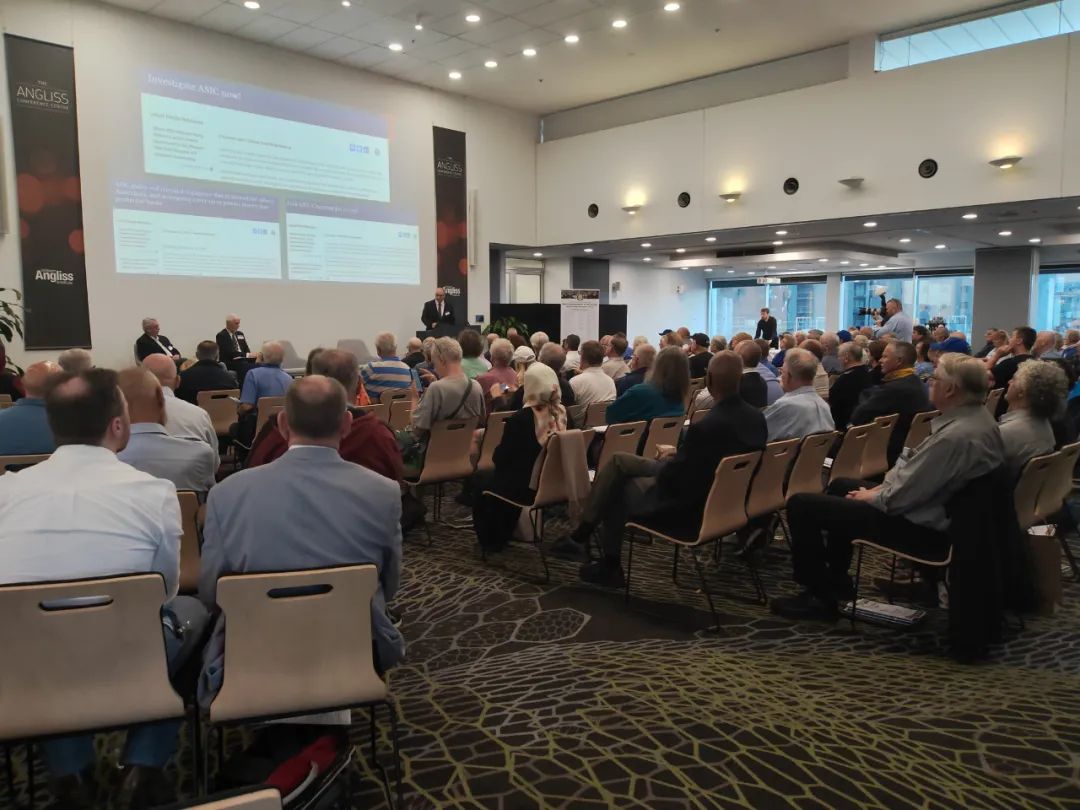 Australia’s Role in the Asia-Pacific Australia’s destiny lies in its ability to engageconstructively with its neighbors in the Asia-Pacific. Our future prosperitydepends on recognizing that our security is intertwined with the region’sstability and growth. Consider the ASEAN bloc, home to over 600 million people andsome of the world’s fastest-growing economies. Nations such as Indonesia andVietnam are not only our trade partners but also our allies in shaping a stableregional order. Strengthening ties with these nations aligns with our long-terminterests. Similarly, our relationship with China remains pivotal.Despite political tensions, China is—and will likely continue to be—our largesttrading partner. The Belt and Road Initiative presents opportunities forcollaboration in areas ranging from infrastructure to technology. By engagingwith China constructively, we stand to benefit economically while contributingto regional stability. The Australian Citizen Party’s Vision In this context, the Australian Citizen’s Party (ACP) hasconsistently advocated for policies that prioritize fairness, practicality, andnational interest. Our vision encompasses three key pillars: 1. An Independent Foreign Policy Moving away fromCold War mentalities and rejecting the notion of being a proxy in conflictsthat serve others’ interests. Australia must chart its own course, guided bythe principles of sovereignty and mutual respect. 2. Strengthening Trade Relationships Nurturing ourpartnerships with China, ASEAN, and BRICS nations is not just an economicnecessity but a strategic imperative. These relationships are vital for ourprosperity in a multipolar world. 3. Upholding Multicultural Values Ensuring that allAustralians, regardless of their background, feel respected and valued isessential for our social cohesion and national identity. The Role of the Chinese-Australian Community The Chinese-Australian community plays a unique role in thisvision. Our cultural heritage and business acumen position us as naturalbridges between Australia and Asia. Yet, to fully realize this potential, wemust address the barriers that have been erected in recent years. The 2022 federal election was a turning point. TheChinese-Australian community, disillusioned by the politics of fear anddivision, shifted its support, delivering a powerful message: Australians willnot tolerate policies that undermine our values of fairness and inclusion. This shift underscores the importance of a forward-thinkingapproach to governance—one that recognizes the contributions of all communitiesand seeks to harness our collective strengths. Conclusion: Choosing Our Future So, I return to Kishore Mahbubani’s question: “DoesAustralia truly want to be the tip of the spear for Western power? Or will weseize the opportunity to be a bridge between East and West, fostering peace,prosperity, and mutual respect? ” The choice before us is clear. By embracing an independentforeign policy, strengthening our regional partnerships, and upholding ourmulticultural values, we can build a brighter, fairer, and more prosperousfuture. Australia’s unique geography, abundant resources, anddiverse population are strengths that position us for success in a multipolarworld. But realizing this potential requires courage—the courage to challengeoutdated paradigms and the wisdom to embrace new opportunities. Together, we can chart a course that reflects the best ofwhat Australia has to offer: an open, inclusive society, a dynamic economy, anda respected voice on the global stage. Let us rise to the challenge and build anation that future generations will be proud to call “home” Thank you. (Photos credit: Marcus Reubenstein, Aisha Novakovich) [袁祖文全文演讲约20多分钟,可以参考油管有关内容:And here's the link to Richard Yuan's Full speech in Youtube: https://youtu.be/WbV0WWGd7BM?si=mY6z4DT31Fzu-Jms ] RICHARD'S BIO 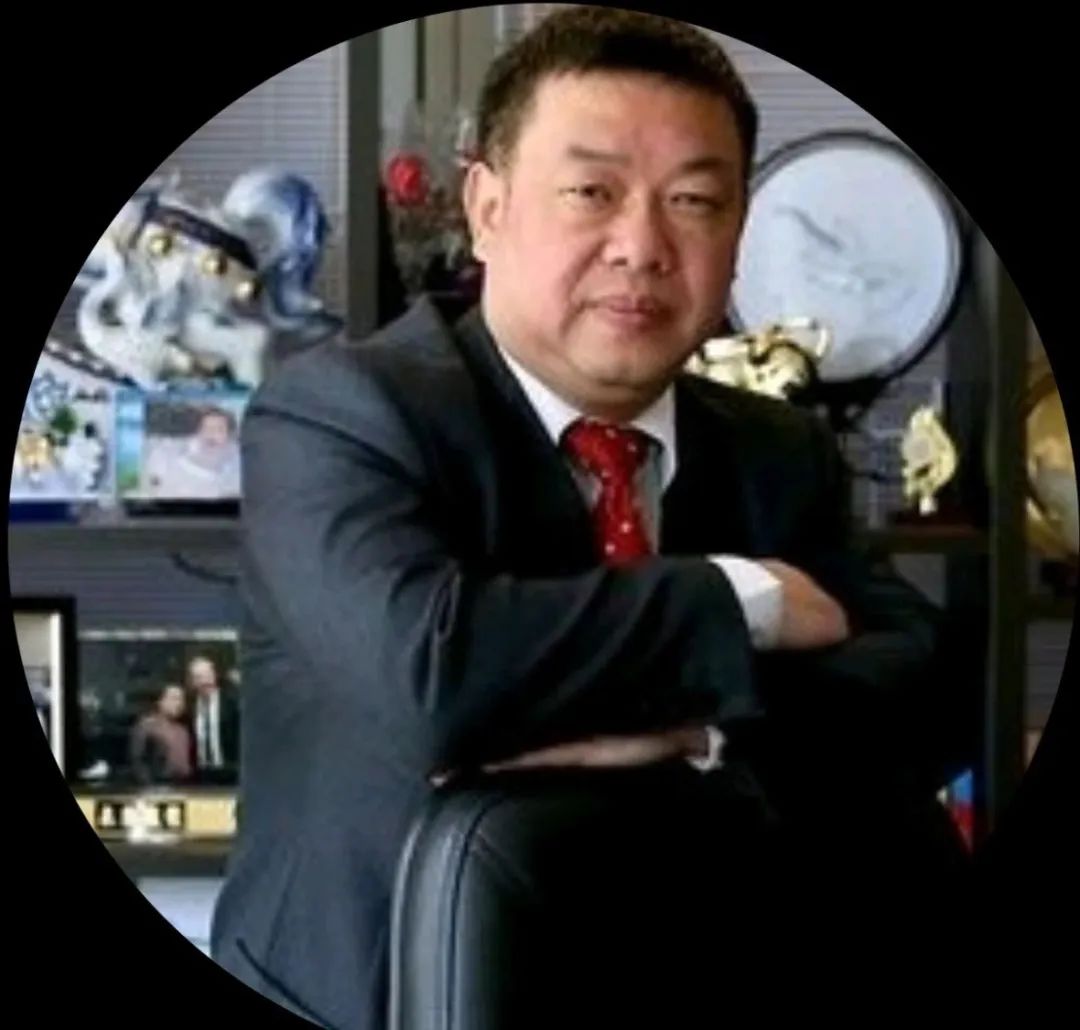 Richard Yuan is a strategic leader, and community leader inAustralia, with record of fostering China-Australia relations through businessinnovation, cultural exchange, and digital influence. Richard founded “ABCWorld Pty Ltd” in 2000. It is a global digital platform for immigrationadvisory, investment management and media services, and is one of the largestWeChat groups of platforms in the Southern Hemisphere, reaching over 800,000 followers. As founder of the “Australia-China Entrepreneurs (ACE)Club”, Richard has created a high-impact network blending cultural heritage, businessdiplomacy and social ties. In 2020, he organised a chartered flight from Wuhan toSydney, to transport goodwill PPEs to donate to many who need them most, fromChina to Australia, when Australia was worst hit. When Australian main streammedia focused and disparaged his contribution to the Australian community, Richardbeat them with a series of defamation cases. Richard advocates that Government be returned to the People. 特别鸣谢及说明:本次演讲澳大利亚公民党提前安排的主讲嘉宾是澳大利亚著名律师,上一届联邦参议员新州候选人Kingsley Liu律师。由于健康原因,我临时受命,按自己多年对澳中关系的理解,诠释了澳中关系中澳大利亚采取独立自主外交政策中的重要性。特别感谢KINGSLEY律师现场捧场鼓励,并热情洋溢地评价了我的现场表现。由于时间有限,准备很仓促,不妥之处,欢迎各位好友私信留言。或者文末留言。 -全文完 The End- -重要商业推广- 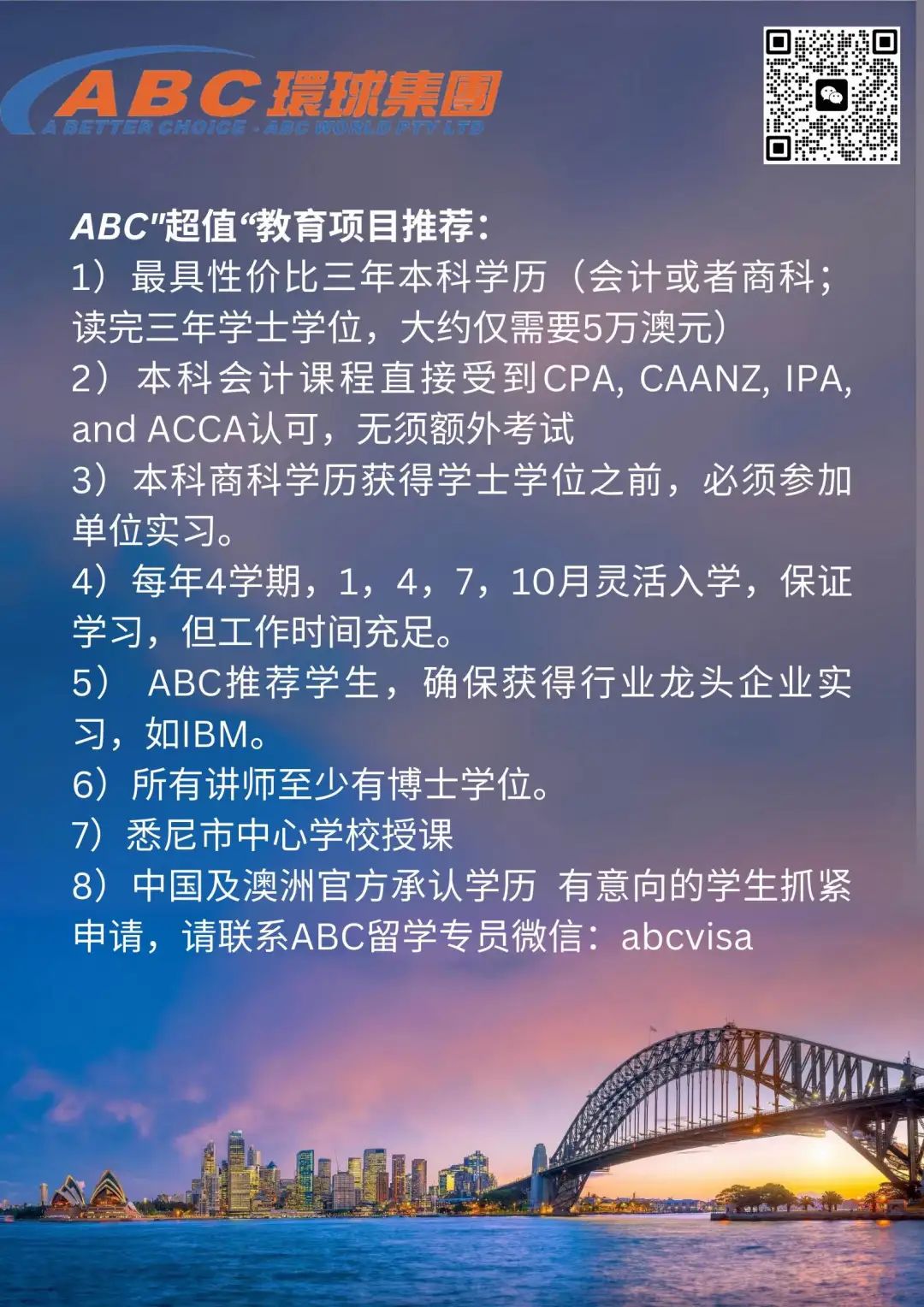 |